Related Content
Download content relating to this event and topic.
The only European event focused entirely on making next-gen antibody formats scalable and real-world viable.
.webp)
Focused. Technical. Translational.
Antibody Engineering 2025 is Europe’s only event built solely to address the real-world bottleneck in novel antibody development: manufacturability.
From bispecifics and degraders to AI-guided scaffolds, we go beyond early-stage discovery and focus on what actually matters: whether these innovative formats can be produced, scaled, and stabilised for clinical use.
Built for protein engineers, developability scientists, and CMC strategists, this is a highly technical, case-led meeting where the next generation of antibody therapeutics is made viable. Not just imaginable.
Why Antibody Engineering 2025 Stands Apart
Built Around Manufacturability – Not Just Molecules
This is the only European event focused entirely on making next-gen antibody formats scalable and real-world viable. Whether you're working on bispecifics, Fc engineering, or AI-designed scaffolds, we’re solving the manufacturability gap that determines success.
The Right People. Not Just More People
We cap attendance to ensure 1:1 access to technical peers, decision makers, and solution providers in antibody R&D and CMC. Every conversation is intentional; every introduction purposeful.
No Discovery Hype. Just Practical Engineering
Sessions are grounded in technical decision making, not speculative science. This is where real strategies for scale, stability, and clinical readiness are shared.
High-Value Networking for Both Sides
Vendors meet the people responsible for antibody format selection, expression, and downstream viability. Researchers meet those solving process bottlenecks daily.
.webp)

View the Key Themes for
Antibody Engineering 2025
Register today to secure your ticket.
Our selected experts will share insights on the latest trends, challenges, and developments in this dynamic field. Engage in unique discussions, learn about cutting-edge scientific discoveries, and explore the future of biopharmaceuticals with these influential thought leaders.


Nathan is Director of the Biologics Discovery and Development team at LifeArc, focusing on delivering antibody therapeutics and bridging the gap between early-phase discovery to the clinic.
Nathan’s previous roles were Director at LabGenius focused on the discovery and engineering of T-cell engagers using AI/machine learning to generate non-intuitive antibody designs for immune-oncology, following a role as Head of Antibody engineering at MiroBio discovering antibody agonists against checkpoint receptors for autoimmune diseases. Prior to this Nathan lead the Antibody Discovery team at OXGENE developing a proprietary mammalian display to screen naïve antibody libraries against integral membrane proteins and 11 years at Heptares Therapeutics engineering and facilitating/solving the atomic structures of GPCR co-ligand complexes by x-ray crystallography.


As Head of Antibody Engineering, Michael oversees lead discovery and high-throughput antibody expression platforms at LabGenius. Michael applies his extensive experience to the production of multispecific antibody formats to advance the discovery of next-generation biologics. Michael has over 20 years of experience in protein engineering and protein expression, previously leading the Protein Technologies group at GSK, where he established a high-throughput mammalian expression platform assessing the production of challenging targets, including ion channels and GPCRs.


Dr. Jonathan Taylor joined AstraZeneca in 2019 as a post-doc, focusing on developing biologics-based degraders as both research tools and future therapeutics. His research explored the utility of E2 enzymes as a complementary platform to E3 ligases, addressing the question: “What makes a good bioPROTAC?” Since 2022, Dr. Taylor has served as a Senior Scientist at AZ, developing masking strategies to improve the safety profile of T-cell engagers within oncology. His work spans both areas, utilizing early phenotypic screening of combinatorial domain libraries to drive biologics development. Previously, Dr. Taylor obtained his PhD at UCL studying fragment-based drug discovery, followed by structural biology projects at Imperial College London.
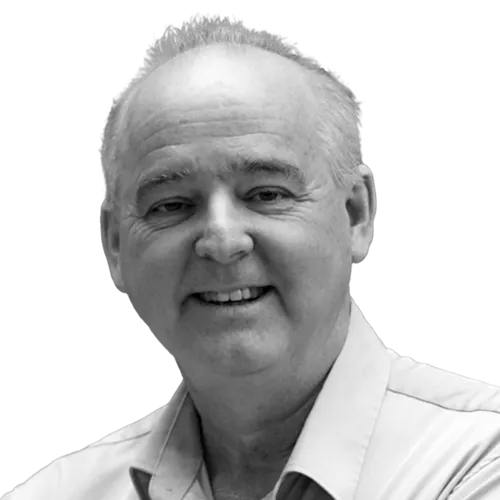

Kevin began his career at Cambridge Antibody Technology (now part of AstraZeneca) when CAT was still in its start-up phase. He went on to found and manage Isogenica Ltd and has since held CEO positions with PhosImmune Inc., Activiomics Ltd and F-star GmbH. Kevin studied for his PhD in the laboratory of Sir Gregory Winter at the MRC Laboratory of Molecular Biology, Cambridge and for his MBA at Aston Business School.
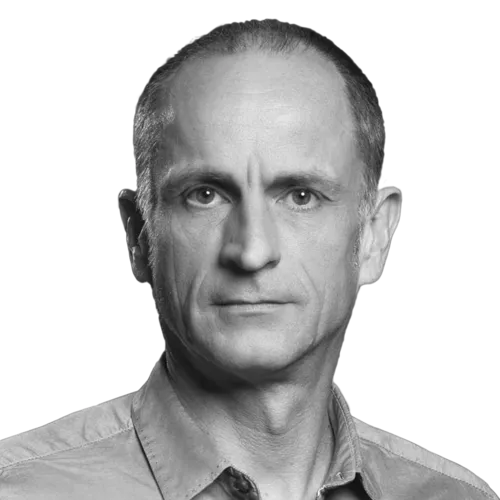

Philip Beer is a physician scientist, cancer biologist and oncology drug developer. He started his professional career as a haematologist with over 16 years frontline healthcare experience including clinical haemato-oncology, pathology and molecular diagnostics. This was followed by 8 years in academic research in Cambridge, UK and Vancouver, Canada, focussed on the development of improved cancer models. For the last 11 years, Philip has worked in the oncology biopharma sector, focussed on biomarker discovery and early phase oncology drug development, leading scientific and clinical development of small molecule and antibody programmes. In addition to his biopharma roles, Philip sits on a molecular tumour board for patients who have exhausted standard of care therapies, and supports biomarker development projects through membership of the International Cancer Genome Consortium, the Indian Cancer Genome Atlas, and as the Chair of the Genomics Working Group at BIVDA, The British In Vitro Diagnostic Association.
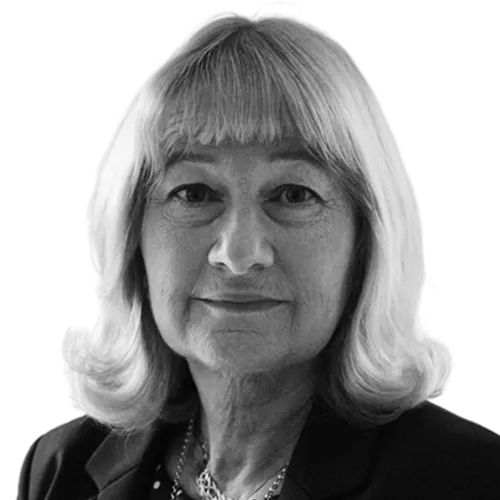

Lindy is Professor of Cancer Immunotherapy and CSO of Scancell Ltd and has developed a panel of monoclonal antibodies recognised tumour associated glycans and has pioneered an new antibody engineering technology which enhances the avidity of monoclonal antibodies, termed AvidiMab®. This has been applied to the anti-glycan monoclonal antibodies resulting in direct killing monoclonal antibodies. These monoclonal antibodies are also good at activate T cells as T cell redirecting bispecific antibodies and also for drug delivery making strong ADCs. She has developed two cancer vaccine platforms ImmunoBody® and Moditope®which induce potent killer CD8 T cells and cytotoxic CD4 T cells respectively. The first ImmunoBody®, SCIB1, has completed a phase I/II monotherapy clinical trial in which 14/16 patients with melanoma have been disease free for five years. SCIB1 is now in a clinical trial (SCOPE) in combination with checkpoint inhibitors and is showing clinical responses in 85% of patients. The first product from the Moditope® platform, Modi-1, which targets citrullinated vimentin and enolase is in a phase II clinical trial (ModiFY) as either monotherapy or in combination with checkpoint inhibitors. A neoadjuvant trial of Modi-1 in patients with newly diagnosed head and neck patients has just started. Lindy has over 150 peer reviewed publications and is also the inventor on 66 patents.


Dr Rafael Grochot is a Medical Oncologist at The Sarah Cannon Research Institute in London, UK (part of HCA International and ESMO Designated Centre of Oncology and Palliative Care), currently leading the breast cancer trial portfolio. He has over 10 years of experience in drug development and clinical trials, including the Memorial Sloan Kettering Cancer Centre’s drug development program (NYC, USA), and The Royal Marsden Hospital (London, UK). In addition to his experience in the field, he is an Expert Member of the Health Research Authority (HRA) Research Ethics Committee (REC). Dr Grochot’s career to date has cultivated a drive to comprehend tumour biology and to further translate it into meaningful advances for patients through hypothesis-testing clinical trials.


Jacques FIESCHI, PhD in immunology (University of Aix-Marseille/CNRS) and former postdoctoral fellow at the French Atomic Energy Commission, worked at Beckman Coulter on the specificity of anti-steroid antibodies and the development of diagnostic tests. After joining QIAGEN-Marseille as head of project management, he helped found HalioDx, a pioneer in immuno-oncology diagnostics, where he headed R&D and initiated contract research activities for the pharmaceutical and biotech industries. His teams' innovations include Brightplex® technology (multiplex IHC), the application of AI to the discovery of biomarkers on histological section images, and the development of original high-throughput DNA/RNA sequencing methods. These tools are used to monitor clinical trials. Jacques is currently Scientific Director at MImAbs SAS.


Marie-Eve Beaulieu, PhD, is the Co-Founder and Chief Scientific Officer of Peptomyc, a biotech company developing mini-protein therapeutics for cancer. With a PhD in Pharmacology and a strong background in protein structural biology, she led the preclinical development of OMO-103, the first direct MYC inhibitor to show safety and clinical activity in patients, now in ongoing Phase 2 trials. Marie-Eve currently oversees Peptomyc’s pipeline expansion, CMC and biomarkers activities, including efforts in antibody conjugates, radioligand therapies, and mRNA delivery. She also co-leads the company’s strategy and business development activities. She co-authored 8 patent applications and over 30 scientific publications, and secured > €40M in public and private funding. Peptomyc has been recognized with multiple awards, including BioFit, EIT Health, J&J Startup Slam, and EIC Accelerator.
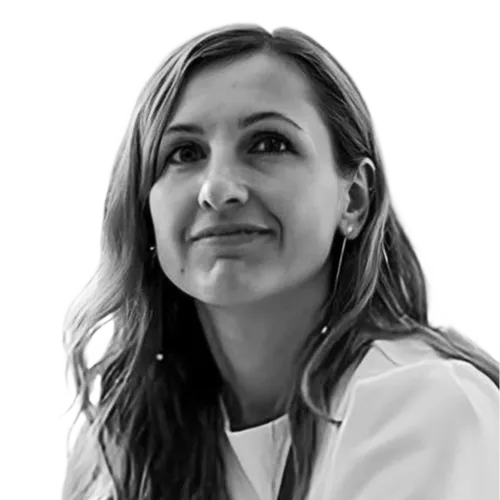

Dr. Lidia Daszkiewicz brings over 15 years of global R&D strategy and cross‐functional leadership in academia, start‐ups, CROs, and biotech. With a PhD in Molecular Biology and specialization in Immunology and Immuno‐Oncology, she has advanced mRNA‐based cancer vaccines, ADCs, and immunomodulatory agents. At Genmab, she integrates biomarker and translational research into antibody development, aligning preclinical assays with clinical trial design to guide patient selection and accelerate decisions.
Previously, she built organizational strategies and managed funding for immuno‐oncology start‐ups, led commercial operations at a CRO and guided global multidisciplinary teams. Her expertise in alliance management and governance supports effective oversight of capital resources and strategic decision‐making.
Dr. Daszkiewicz is dedicated to translating cutting‐edge science into impactful therapies, ensuring biomarker strategies drive meaningful patient outcomes.


Sem Tamara obtained a Ph.D. in pharmaceutical sciences from Utrecht University, specializing in mass spectrometry and protein science. After Ph.D. he completed Johnson & Johnson’s Science & Business Fellowship, gaining experience in pharmaceutical R&D. Now, as Head of Discovery Technologies at Abvion, Sem is leading the discovery of novel antibody therapeutics directly from human biofluids using mass spectrometry and advanced analytics.


Dr. Duplantis has a strong technical background and over a decade of experience applying drug and vaccine discovery and development platforms in commercial settings. He was the founder and CEO of a biotech startup and later led client relations at a global contract research organization. Dr. Duplantis earned his Ph.D. in Biochemistry and Microbiology from the University of Victoria, where his research focused on intracellular pathogenesis.
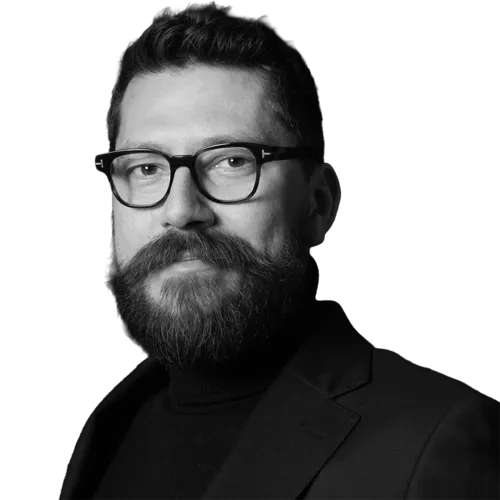

I am a translational scientist passionate about innovation at the intersection of academia and biotech. I draw on the exploratory freedom and deep scientific insight of academic research, and the fast-paced, solution-oriented environment of industry to accelerate the development of next-generation therapeutics that address unmet clinical needs. Since 2019, I have served as Director of Biology at NovalGen, a clinical-stage biotech spun out of University College London, where I lead efforts to develop novel regulatory mechanisms that enhance the safety of immunotherapies. Our work spans from proof-of-concept development to applications in bispecific antibodies and cell therapies, aiming to bring transformative treatments closer to patients. In parallel, I am a Research Fellow at UCL – Cancer Institute where I explore the translational potential of immunotherapies and AAV-mediated gene transfer for both monogenic and acquired disorders. I hold a PhD in Molecular and Cellular Genetics from University Paris 11 – Sud.


Peter Ellmark joined Alligator Bioscience in 2008 and serves as Chief Scientist. He holds a PhD and a professorship in Immunotechnology at Lund University and has more than 20 years’ experience of developing antibodies for immunotherapy of cancer. Dr. Ellmark´s research interest is focused on developing mono- and bispecific antibodies, in particular CD40 and 4-1BB targeting therapies, for tumor directed immunotherapy of cancer.
Join the roster of esteemed colleagues to discuss what you or your company are bringing to the biopharmaceutical industry.
Choose a plan that fits your role, company, and industry.
Priority Codes
Enter the below access codes at checkout to secure preferrential rates
EARLY-BIRD
(Valid until 18 July 2025, 23:59 BST)
TIDESxAB
(Valid until 30 August 2025, 23:59 BST)
Priority Codes
Enter the below access codes at checkout to secure preferrential rates
EARLY-BIRD
(Valid until 18 July 2025, 23:59 BST)
TIDESxAB
(Valid until 30 August 2025, 23:59 BST)
Attendance Only
Partnership benefits not included
Be the first in line! Register your interest now to get exclusive access to Super Early-Bird tickets - the lowest prices available - before they go live.
Contact the IMAPAC to learn about our sponsorship process, rates and more.
Visit the event page to view more content.
Download content relating to this event and topic.
Visit the event page to view more content.
Visit the awards page to view more content.
To stay informed about event updates, including date, venue, and agenda, please subscribe to our our official social media channels for real-time updates and announcements.
The conference will provide a comprehensive learning experience covering various aspects of the dynamic biopharmaceutical industry, ensuring attendees gain valuable insights and knowledge.
We are committed to ensuring the safety and well-being of all attendees. We will implement rigorous safety measures in line with local health guidelines and regulations. Specific safety measures will be communicated closer to the event date to ensure they align with the most up-to-date health recommendations. Rest assured, your safety is our priority.
Yes, we have a cancellation and refund policy in place. Please refer to our “Cancellation Policy” on our website for details on how to request a refund if you are unable to attend.
We welcome presentation submissions. If you’re interested in speaking at the event, please visit this page on our website for submission guidelines and deadlines.
Our event is designed to cater to a wide range of professionals within the biopharmaceutical industry, including researchers, scientists, executives, regulatory experts, and professionals involved in drug development and manufacturing.
Participants can expect to gain insights from industry experts, network with peers, and stay up-to-date with the latest trends and innovations in biopharmaceuticals
Yes, we have networking sessions, workshops, and social events scheduled throughout the event to facilitate connections and collaborations among attendees.
Yes, we offer sponsorship and exhibition opportunities for businesses and organizations. Please visit our this page on our website for more information.
To register for the event, you'll find multiple "register" buttons on this page to get started. You’ll find detailed instructions and options for registration, including pricing and deadlines.
Don't miss out on unique networking, speaking and sponsorship opportunities.